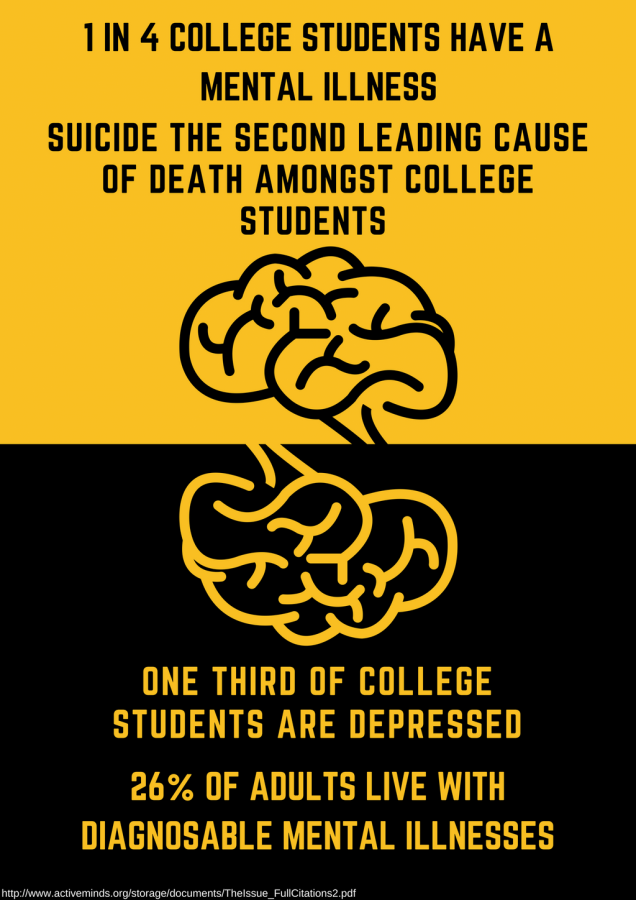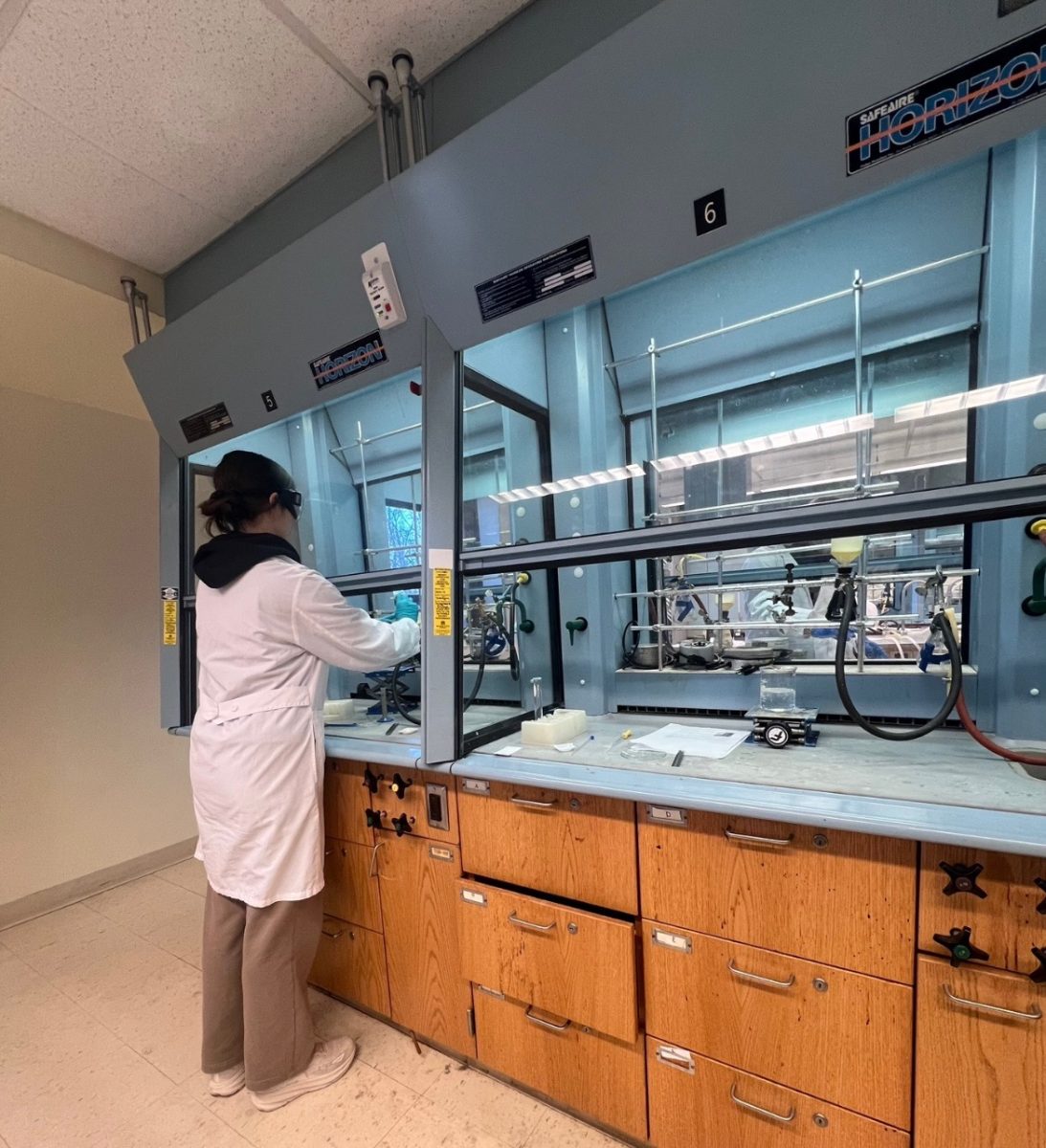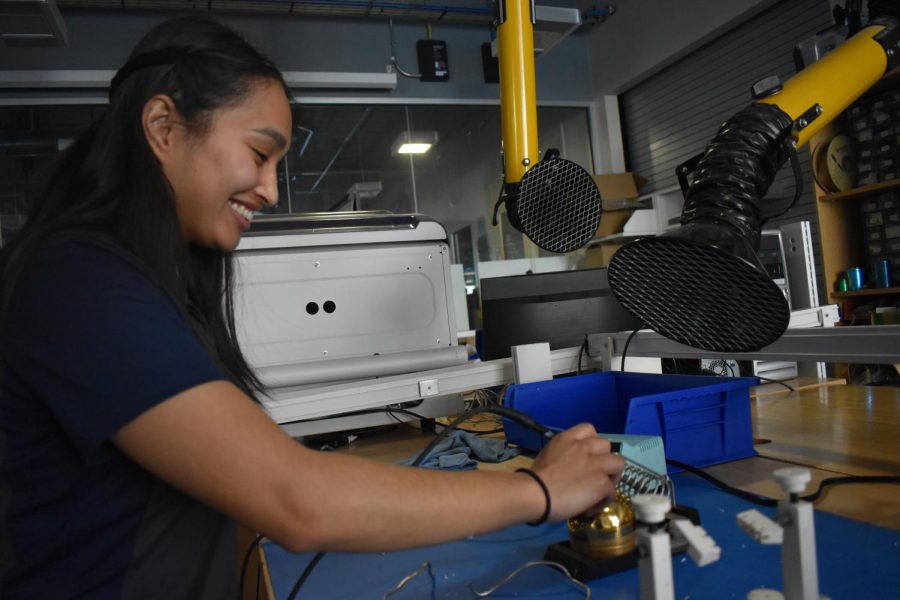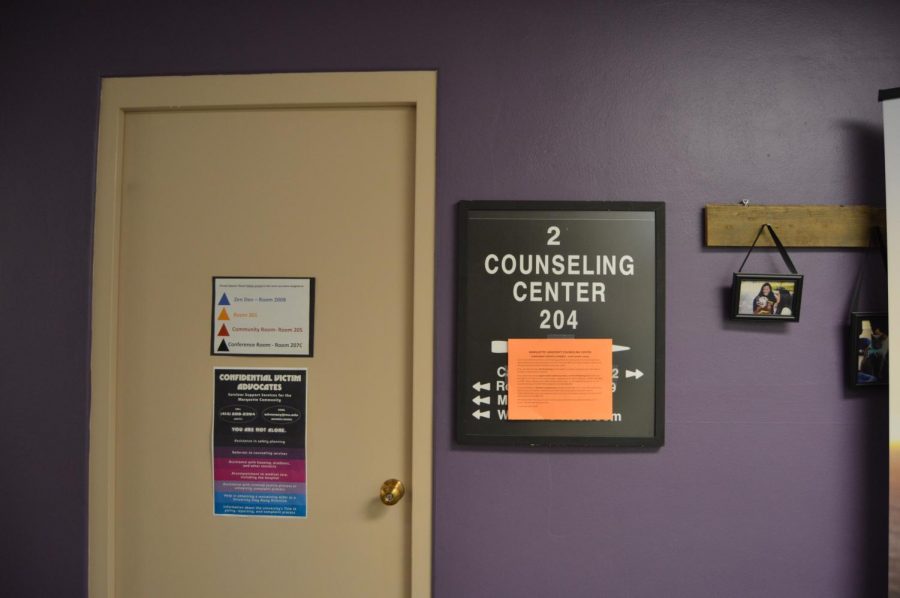Nearly one out of ten Americans suffer from light or chronic depression, a serious affliction that especially affects students dealing with the stress of moving away from home to begin college. The College of Health Sciences will host a free seminar Monday morning to address just this, titled “The Intersection of Hope, Medicine and Research,” in the Alumni Memorial Union ballrooms. The event will begin at 7:15 a.m. with a complimentary breakfast and conclude at 9 a.m.
This is the first event in a new research series developed by the university that aims to present new findings regarding depression, according to a Sept. 10 university news brief.
The seminar will focus on what mental health providers and scientific researchers are learning about depression. The experts will speak on the idea, “Where there is a biological basis, there is a hope for a biological treatment,” in terms of dealing with depression.
Guest speakers include Peter Lake, the medical director of the Child and Adolescent Center at Rogers Memorial Hospital in Oconomowoc, Suzy Favor-Hamilton, a three-time Olympian who has dealt with depression, Paul Gasser, assistant professor in the Department of Biomedical Sciences and William Cullinan, an associate professor of biomedical sciences and dean of the College of Health Sciences.
Cullinan said he will present his concern pertaining to the established link between stress and depression. He aims to instill hope in individuals who have not recognized depression as the biological illness it is.
“It is intuitive that stress can lead to negative effects on health; in this case I will summarize what is known about regulation of the release of stress hormones like cortisol, which have been linked to the onset of depressive illness,” Cullinan said.
Liz Griesmaier, a junior in the College of Nursing, said she thinks such factors especially affect and influence Marquette students.
“The more coping mechanisms that they can teach us as students, who are always under stress, will be a really good thing,” Griesmaier said.
Dana Ionel, a junior in the College of Health Sciences and the head of marketing for the mental health student organization Active Minds, said she thinks depression among college students is largely caused by environmental change, as most students are away from friends and family for their first time.
Ionel added that Active Minds hosts its own events, like “Question, Persuade, Respond,” which instructs students on how to recognize signs of depression and potential suicidal behavior in themselves or those they know.
“Active Minds strives for awareness to also help prevent people from feeling alone if they are in such a position,” Ionel said.
Ionel pointed out other outreach sources to which Marquette students struggling with depression may turn. Such campus aids include Campus Ministry and the Counseling Center, “where students can have one-on-one attention,” she said.
Cullinan added that the academic environment at universities can be overwhelming to many students, a fact that makes confronting depression especially relevant among college students.
“Recent scientific evidence indicates that adolescents and young adults appear to be particularly vulnerable to the effects of chronic stress that can predispose these populations to depression,” Cullinan said.
Cullinan said a major motivation to begin the series was the hope of de-stigmatizing depression.
“The fact is that too many persons affected by depression are reluctant to seek treatment because they have been made to see it as a personal weakness or even a character flaw,” Cullinan said. “The tragedy is that many needlessly suffer as a result.”












